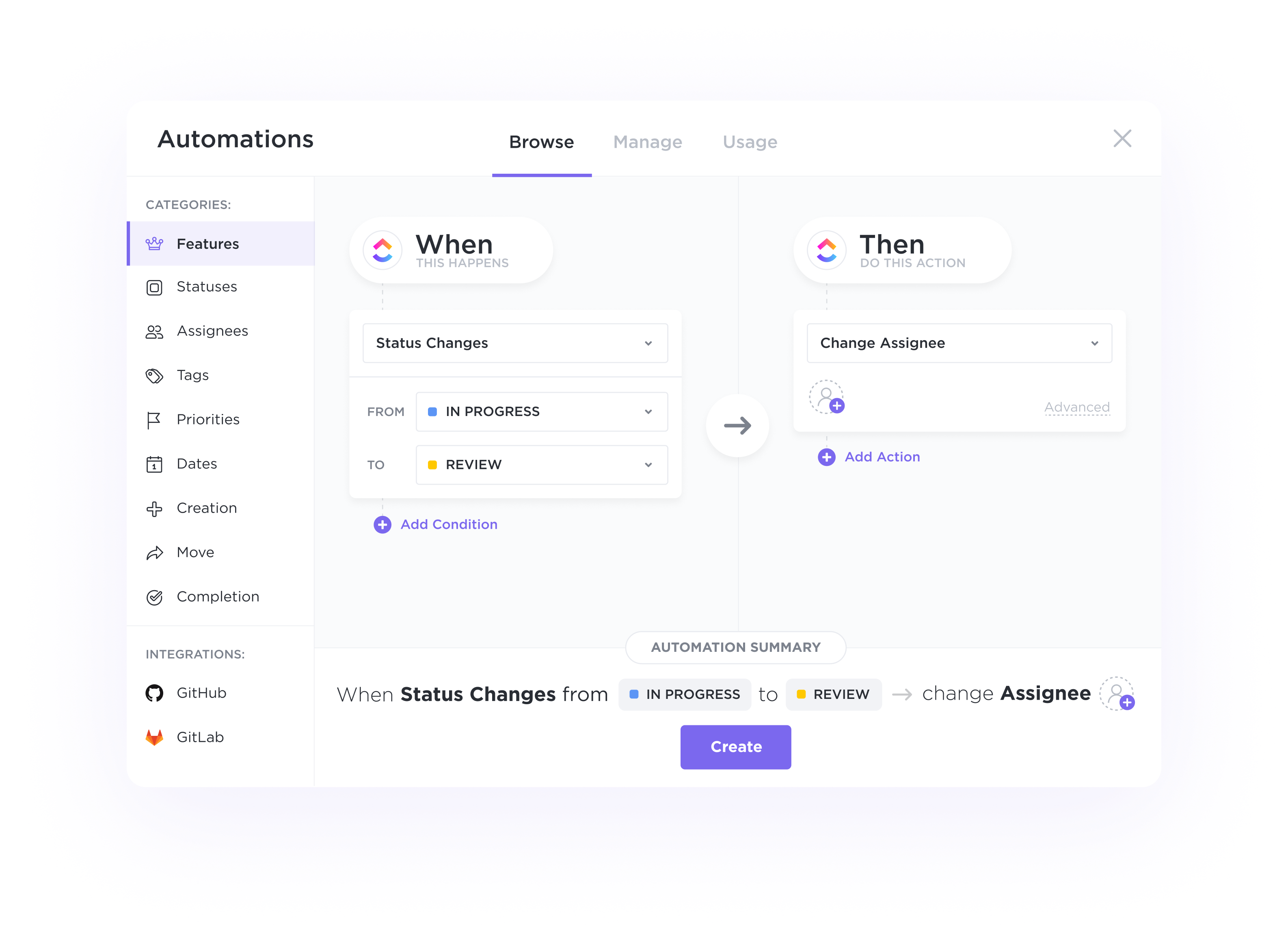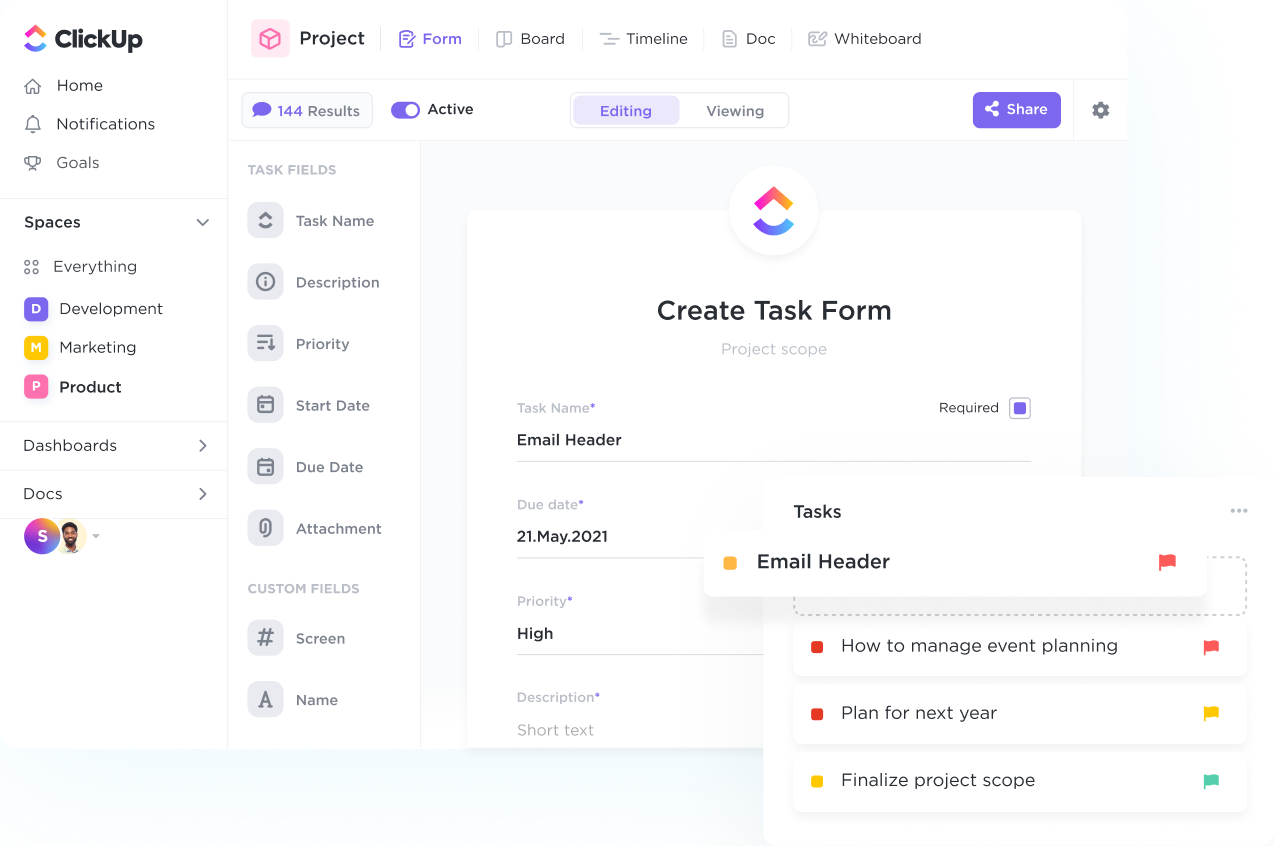Automate handoffs, status updates, and more.
Automatically assign tasks for each stage of your pipeline, trigger status updates based on activity, and switch priorities to alert your team on where to focus next.

Supercharge your Facilities Management operations with ClickUp's customizable CRM system. Streamline your processes, track customer interactions, and boost efficiency with our user-friendly platform. Experience seamless communication and improved customer relationships like never before with ClickUp.
Free forever.
No credit card.
Trusted by the world’s leading businesses
Automatically assign tasks for each stage of your pipeline, trigger status updates based on activity, and switch priorities to alert your team on where to focus next.

Streamline your intake process, organize response data, and automatically create tasks with custom branded Forms powered by conditional logic.

Key features of CRM software for facilities management include maintenance scheduling, asset tracking, inventory management, work order management, and reporting capabilities. These features help streamline facility operations, improve maintenance efficiency, and enhance overall facility management.
CRM software can streamline work orders and maintenance requests for facilities management by centralizing all requests, scheduling maintenance tasks efficiently, tracking progress in real-time, and enabling better communication between teams and vendors.
Yes, some CRM software offers integration with facility management tools and systems, allowing for a more seamless process and centralized data management across different platforms.